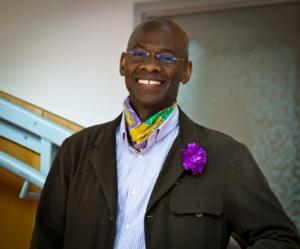Haiti Place
A champion of Creole
News Information
- NEWS_POSTED_BY: Haiti Place
- NEWS_POSTED_ON: Aug 08, 2015
- Views : 737
- Category : Diaspora News
-
Description :
MIT News
Michel DeGraff, an associate professor in MIT’s Department of Linguistics and Philosophy.
Linguist Michel DeGraff is on a quest to give Haitian Creole its due as a respected language — and to help Haitian schoolchildren learn in their native tongue.
Peter Dizikes, MIT News Office
May 12, 2011
Photo: Melanie Gonick - Location : Massachusetts, United States
- Website : http://newsoffice.mit.edu/2011/profile-degraff-0512
Overview
- As a child living in Haiti, Michel DeGraff primarily learned to speak and read French. And as an ambitious student, he did so with good reason: French has been the language of the country’s educated classes and social elites virtually since Haiti gained independence in 1804, even though the vast majority of its citizens speak only Haitian Creole, a linguistic descendant of French with influences from West and Central African languages.
“When I was growing up, in a middle-class family and in my school, Creole wasn’t viewed as a real language,” DeGraff says. “It was a given that you could only be successful in French.”
Over the years, many observers have disparaged Haitian Creole as a primitive tongue incapable of expressing complex concepts, while linguists have generally asserted that it is descended from a pidgin language. DeGraff emphatically disputes this. The associate professor of linguistics at MIT has spent years presenting evidence that Haitian Creole is just as sophisticated as other languages, publishing papers in journals such as Language, Language in Society, Linguistic Anthropology and Linguistic Typology.
“It is clear that Haitian Creole cannot be taken to have evolved via some exceptional processes that would make creolization radically different from ‘normal’ processes of language change,” DeGraff wrote in a 2009 edited volume, The Languages of Africa and the Diaspora.
Moreover, he argues that the whole notion of “creole” languages — those deemed a skeletal combination of other languages — is a flawed construct reflecting colonial attitudes and reinforcing the interests of the social elite.
“As far as I can tell, there is no rigorous, scientific way to determine what is a creole language,” DeGraff says.
Read more here >>
